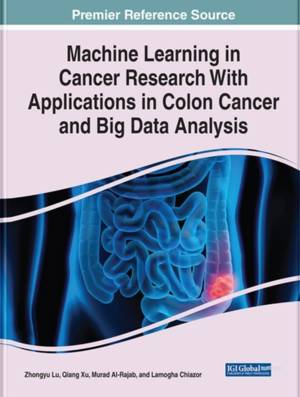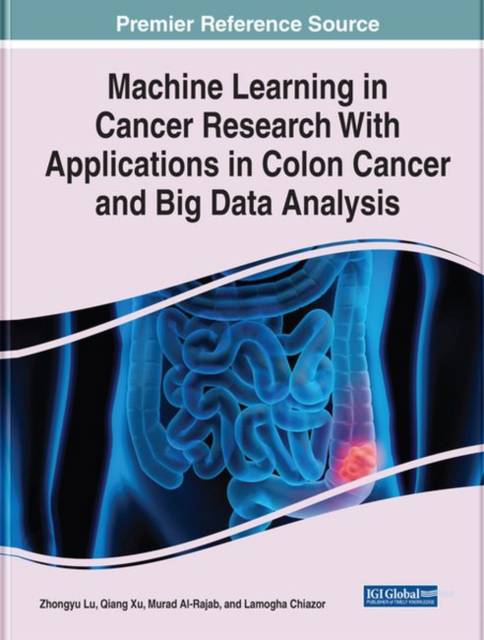
- Afhalen na 1 uur in een winkel met voorraad
- Gratis thuislevering in België vanaf € 30
- Ruim aanbod met 7 miljoen producten
- Afhalen na 1 uur in een winkel met voorraad
- Gratis thuislevering in België vanaf € 30
- Ruim aanbod met 7 miljoen producten
Zoeken
Machine Learning in Cancer Research With Applications in Colon Cancer and Big Data Analysis
Zhongyu Lu, Qiang Xu, Murad Al-Rajab
Hardcover | Engels
€ 530,95
+ 1061 punten
Omschrijving
Cancer continues to be a growing problem as it is the foremost cause of death worldwide, killing millions of people each year. The number of people battling cancer continues to increase, owing to different reasons, such as lifestyle choices. Clinically, determining the cause of cancer is very challenging and often inaccurate. Incorporating efficient and accurate algorithms to detect cancer cases is becoming increasingly beneficial for scientists in computer science and healthcare, as well as a long-term benefit for doctors, patients, clinic practitioners, and more. Specifically, an automation of computation in machine learning could be a solution in the next generation of big data science technology. Machine Learning in Cancer Research With Applications in Colon Cancer and Big Data Analysis presents algorithms that have been developed to evaluate big data approaches and cancer research. The chapters include artificial intelligence and machine learning approaches, as well as case studies to solve the predictive issues in colon cancer research. This book includes concepts and techniques used to run tasks in an automated manner with the intent to improve better accuracy in comparison with previous studies and methods. This book also covers the processes of research design, development, and outcome analytics in this field. Doctors, IT consultants, IT specialists, medical software professionals, data scientists, researchers, computer scientists, healthcare practitioners, academicians, and students can benefit from this critical resource.
Specificaties
Betrokkenen
- Auteur(s):
- Uitgeverij:
Inhoud
- Aantal bladzijden:
- 263
- Taal:
- Engels
Eigenschappen
- Productcode (EAN):
- 9781799873167
- Verschijningsdatum:
- 28/05/2021
- Uitvoering:
- Hardcover
- Formaat:
- Genaaid
- Afmetingen:
- 216 mm x 279 mm
- Gewicht:
- 938 g

Alleen bij Standaard Boekhandel
+ 1061 punten op je klantenkaart van Standaard Boekhandel
Beoordelingen
We publiceren alleen reviews die voldoen aan de voorwaarden voor reviews. Bekijk onze voorwaarden voor reviews.











